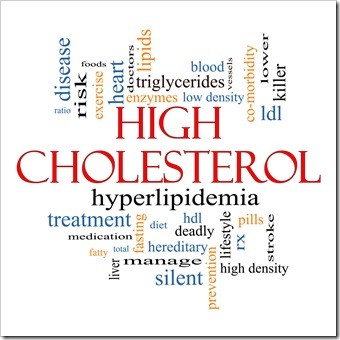
According to a recent report, cardiovascular disease takes more lives worldwide than any other disorder. Diseases of the heart and blood vessels, are accountable for just over 4 million deaths in Europe every year and nearly one-third of all deaths worldwide. In the United States, coronary artery disease claims responsibility for nearly 20% of all the disease-related deaths. Each year about 1.5 million Americans suffer from a heart attack. Despite decades-long public health campaigns across the globe, heart disease still remains a powerful, formidable force.
A large part of this problem is related to three risk factors for heart disease: high blood pressure, high cholesterol levels in the blood, and diabetes. As worldwide epidemics of obesity and diabetes continue to worsen, it is easy to see why heart disease remains the number one killer. Obesity is strongly linked to high cholesterol levels, and the combination of diabetes and obesity is very strongly linked to high blood pressure. As the epidemics continue to persist, so does the prevalence of heart disease risk elements. There are no public health issues that exist in isolation, and this is especially true for heart disease.
Your Lifestyle Affects Your Health
Heart disease, hypertension, diabetes, high serum cholesterol levels, and obesity are all examples of lifestyle disorders. This means that we can take action on our own behalf and start to do things that will positively impact our long-term health and well-being. Such lifestyle changes are vital for everyone, as people of all ages, races, and genders can be affected by these lifestyle diseases.
Lifestyle changes primarily involve changes to your diet, participating in consistent vigorous exercise, and getting sufficient rest. For example, it is well-known that many people in developed societies consume more calories than they require everyday. The excess calories are primarily stored as fat. Reducing your daily food consumption, while obeying the basic principle of eating from a wide variety of food groups, will likely result in weight loss and a allow high cholesterol levels to return to normal. Assisting in this process is engaging in regular vigorous exercise. A proven method is to exercise for 30 minutes, five times per week. This exercise can include walking, cycling, running, swimming, or strength training. The choice of exercise is less significant than the consistency of the exercise. The reward for your commitment to a healthy diet and regular exercise is extremely significant. Research has shown that prevention strategies, such as lifestyle modifications account for a 50% reduction in the mortality from heart disease.
Time and Effort are the Key to Success
But in order to gain these rewards, the large commitment of time and effort is required. In today’s society, good health doesn’t just happen. We have to work at it. It’s our decision on whether we’re worth it, whether we want to continue to enjoy a full range of relationships and activities, whether we want to be healthy and well for many years to come. If the answer to these questions is affirmative, lifestyle changes become very important.
For Your Health,
Dr. Mat Pastore
